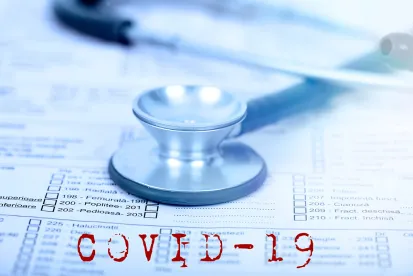The Internal Revenue Service (IRS) recently issued Notice 2020-50 (the “Notice”), which, among other things, (a) expands the categories of individuals who are eligible for the special coronavirus-related distributions and the plan loan relief allowed by the CARES Act, (b) provides helpful guidance and examples on how qualified individuals will reflect the tax treatment of these distributions and loans on their federal income tax filings, and (c) provides employers a safe harbor procedure for implementing the suspension of loan repayments otherwise due through the end of 2020.
Expanded Eligibility of Coronavirus-Related Distributions
As described in our March 28, 2020 blog post, retirement plans and IRAs are not required but may elect to permit a “qualified individual” to take a penalty-free coronavirus-related distribution during 2020. As part of the Notice, the IRS has expanded the definition of “qualified individual” to include some members of an individual’s household, in addition to the individual and his or her spouse. The definition also has been expanded to cover a few other circumstances such as a delayed job offer or reduced self-employment income. Specifically, as a result of the Notice, a “qualified individual” now includes someone who:
-
Is diagnosed, or whose spouse or dependent is diagnosed, with the virus SARS-CoV-2 or the coronavirus disease 2019 (collectively, “COVID-19”) by a test approved by the Centers for Disease Control and Prevention (including a test authorized under the Federal Food, Drug, and Cosmetic Act); or
-
Experiences adverse financial consequences as a result of the individual, the individual’s spouse, or a member of the individual’s household (that is, someone who shares the individual’s principal residence):
-
Being quarantined, being furloughed or laid off, or having work hours reduced due to COVID-19;
-
Being unable to work due to lack of childcare due to COVID-19;
-
Closing or reducing hours of a business that they own or operate due to COVID-19;
-
Having pay or self-employment income reduced due to COVID-19; or
-
Having a job offer rescinded or start date for a job delayed due to COVID-19.
-
Moreover, a retirement plan administrator may rely on an individual’s certification that the individual is a qualified individual (a sample certification is provided in the Notice), so long as the administrator does not have actual knowledge to the contrary.
Tax Treatment of Coronavirus-Related Distributions and Recontributions
Notably, coronavirus-related distributions are not immediately subject to the 10 percent penalty generally applicable to early withdrawals or the 20 percent mandatory tax withholding applied to retirement plan distributions. Rather, such amounts may be included in income ratably over three years (unless an irrevocable election to include all at once in the first year has been made). Nonetheless, they should still be reported on Form 1099-R, even if they are repaid in the same year.
Such a distribution will be treated as though it were paid in a direct rollover to an eligible retirement plan if the distribution is eligible for tax-free rollover treatment and is recontributed to an eligible retirement plan within the three year period beginning on the day after the date on which the distribution was received. The recontribution may be made to the plan from which the distribution was taken, to an IRA, or to another eligible retirement plan that is permitted to accept eligible rollover contributions. Such a recontribution will be treated as a tax-free rollover contribution for tax purposes. However, any distribution (whether from an employer retirement plan or an IRA) paid to a qualified individual as a beneficiary of an employee or IRA owner (other than the surviving spouse of the employee or IRA owner) cannot be recontributed.
In order for qualified individuals to receive favorable tax treatment they must report their coronavirus-related distributions on their federal income tax returns and on new IRS Form 8915-E (which is expected to be available before the end of 2020). Notably, qualified individuals can claim the tax benefits of coronavirus-related distribution rules even if plan provisions are not changed, so long as the requirements are met.
Plan Loans and Repayment Suspensions
Loan repayment suspensions for up to a year may be permitted, but are not required, for repayments that are due from March 27 through December 31, 2020. After the suspension period, payments can be reamortized and continue for up to one year after the loan was originally due to be repaid. Employers should refer to the Notice for more details about how the CARES Act rules for coronavirus-related distributions and loans from plans apply, as there may be other reasonable methods that may be implemented as well.
Nonqualified Deferred Compensation Plans. In the ordinary course, a nonqualified deferred compensation plan may only allow a participant to cancel his/her current deferral election due to an unforeseeable emergency or if he/she receives a hardship distribution from the nonqualified plan. In the Notice, the IRS explains that the receipt of a coronavirus-related distribution from a retirement plan will be treated the same as a hardship distribution from the nonqualified plan, thus allowing for a cancellation of a participant’s deferral election. The deferral election must be cancelled, not merely postponed or otherwise delayed.







 />i
/>i
